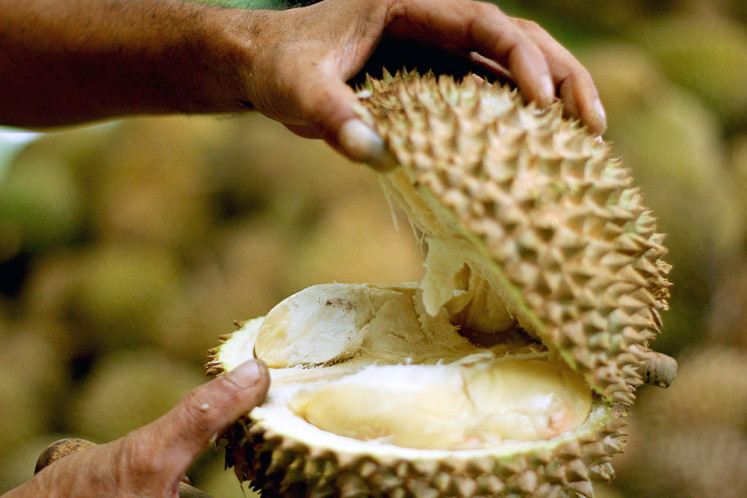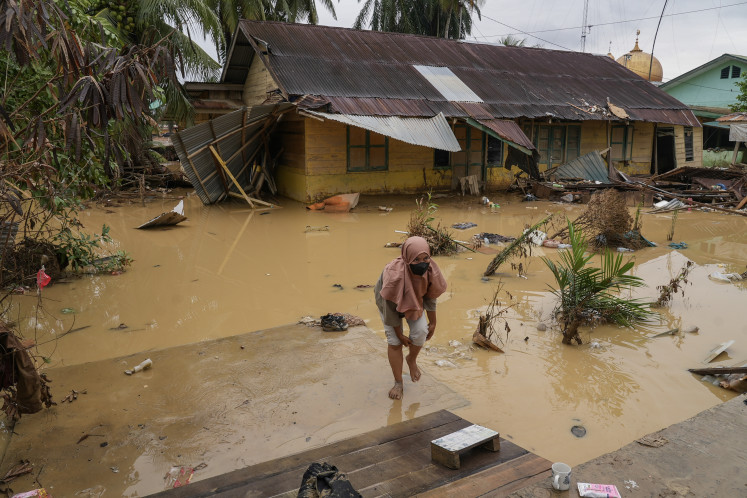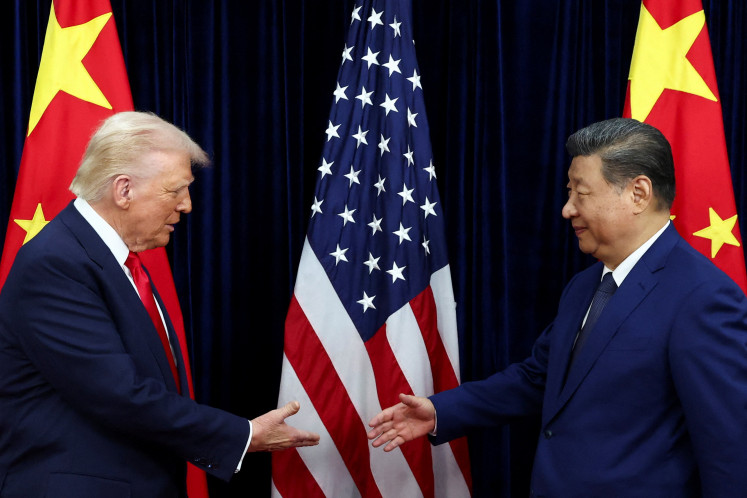Popular Reads
Top Results
Can't find what you're looking for?
View all search resultsPopular Reads
Top Results
Can't find what you're looking for?
View all search resultsAccess to banking: Critical to ending poverty
In Indonesia, 36 percent of the population has a bank account and just 13 percent have borrowed from banks, compared with East Asia and the Pacific where the rate is 69 percent. The working poor tend to access credit informally through pawn brokers and money lenders who can charge exorbitant interest rates as high at 10 percent per day. Added to this, they don’t have insurance that can provide a buffer against shocks or pensions that help give long-term security. They often lack financial literacy allowing them to plan or expand their enterprise to give them a real chance of climbing out of poverty.
Change text size
Gift Premium Articles
to Anyone
F
inancial inclusion is an important component of poverty alleviation. It is about increasing access to financial services, especially for the working poor, who typically rely on irregular, low-paid work in the informal economy.
In Indonesia, 36 percent of the population has a bank account and just 13 percent have borrowed from banks, compared with East Asia and the Pacific where the rate is 69 percent.
The working poor tend to access credit informally through pawn brokers and money lenders who can charge exorbitant interest rates as high at 10 percent per day. Added to this, they don’t have insurance that can provide a buffer against shocks or pensions that help give long-term security. They often lack financial literacy allowing them to plan or expand their enterprise to give them a real chance of climbing out of poverty.
Expanding access to financial services especially for the ‘unbanked poor’ and small enterprises is central to the Sustainable Development Goals (SDGs), 17 ambitious goals which Indonesia committed to achieving by 2030. It is a target of multiple SDGs, including those aimed at ending poverty, increasing food security, achieving gender equality and reducing inequalities.
The government of Indonesia has developed a Financial Inclusion National Strategy in 2012, which is now being updated. The target of the National Strategy is to increase the percentage of adults with access to formal financial services from 36 percent in 2014 to 50 percent by the end of 2019.
However, without a steady income, financial services such as a bank account will be of little value to Indonesians struggling to make a living. In addition to covering their basic expenses, including food, education, shelter and medical costs, the poor need to have the capacity to use financial services and invest part of their income in business activities. Farmers, for example, can use credit lines to invest in adaptation technologies to help manage changes to weather or their environment.
In the Pacific countries, where communities are isolated, the government in partnership with UNDP and the United Nations Capital Development Fund (UNCDF) has implemented a successful initiative to expand inclusive financial systems. Clients previously without access to financial services — savings, credit, insurance remittance transfers, pensions and investments — now have such access.
The use of mobile phones, point of sale devices, smart cards and other technologies ease the delivery of financial services, increase transparency and cut costs as well as reaching the previously “unbanked” populations.
This week, United Nations Development Program (UNDP) and the Financial Services Authorities (OJK), the Indonesian financial authority, agreed to partner on advancing financial inclusion and the SDGs in Indonesia.
The partnership with OJK seeks to increase financial literacy among the poor and make available services that equip them to transfer funds, save and invest. These and other financial services will be tailored to the needs of the poor and will use technology to circumvent issues such as remoteness thereby also cutting costs.
This new partnership builds on the work already underway with Regional Bank of Nusa Tenggara Timur (Bank NTT) to bring water to drought-affected communities in the province, thereby increasing the livelihood opportunities available to some of the poorest communities exposed to climate change related risks. Now these communities can engage in irrigated agriculture and food processing that brings in alternative sources of income while Bank NTT can also explore providing financial services to these previously unbanked areas.
The SDGs are an ambitious agenda and the government cannot achieve them alone. The business community, civil society as well as the banking sector also play a role. Partnerships such as these with the banking sector are important because they bring the possibility of innovation and transformational change for the poor, which is what the SDGs are about.
***
The writer is deputy country director at United Nations Development Program Indonesia.
---------------
We are looking for information, opinions, and in-depth analysis from experts or scholars in a variety of fields. We choose articles based on facts or opinions about general news, as well as quality analysis and commentary about Indonesia or international events. Send your piece to community@jakpost.com. For more information click here.










